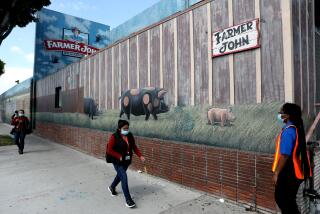Vernon has about as many coronavirus cases as residents. That worries its neighbors
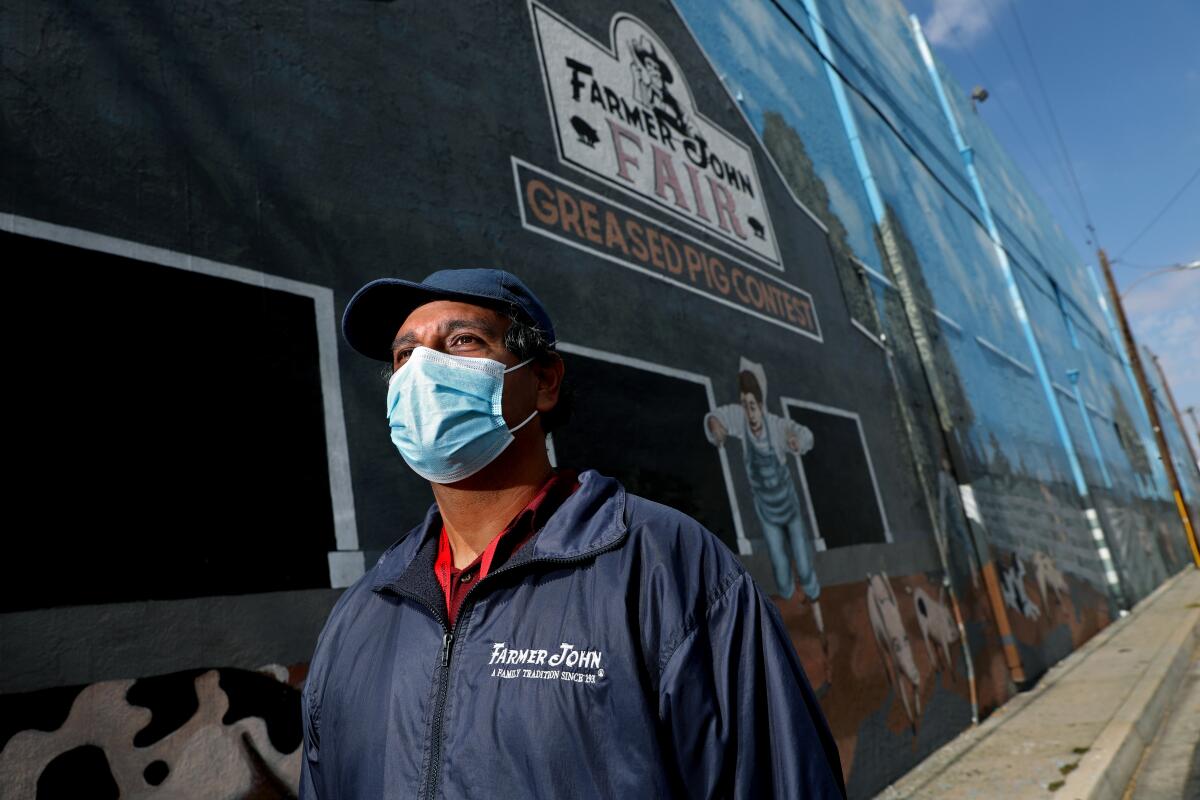
- Share via
Inside the home of the famed Dodger Dog, Pedro Albarran watched with alarm as his colleagues stood at the meatpacking line shoulder-to-shoulder, unmasked, amid the coronavirus pandemic.
People started coughing. Then, one by one, they disappeared from their places in the line.
Sure enough, the virus was circulating at the Farmer John plant in the city of Vernon, sickening at least 165 workers as of June 2, according to the Los Angeles County Department of Public Health. It also spread through eight other factories with between five and 24 infected employees at each, for a total of more than 200 infections.
On paper, there have only been 21 confirmed cases of COVID-19 in the city. But that’s because the one thing Vernon, an industrial powerhouse in southeast L.A. County, has almost nothing of is people who actually live there.
Vernon is home to just about 200 residents and almost 2,000 businesses. Most workers commute from other working-class, heavily-Latino cities, where there is now growing concern that the Vernon outbreaks will spread to other communities.
According to a recent county health department report evaluating Vernon and Farmer John’s response to the outbreaks, 157 infected workers live in L.A. County cities, two live in San Bernardino County and two are from Long Beach.
“That’s why it’s important to stop the virus here, so it doesn’t spread to other cities,” said Albarran, a 25-year Farmer John employee who drives home each night to El Monte.
The coronavirus outbreaks have rekindled public scrutiny of one of the state’s oddball municipalities. With its honeycomb of factories and businesses and dearth of people who call it home, Vernon is a town with a colorful past marred by scandals. Allegations of corruption amid a long secretive political culture almost caused the state to disband Vernon as a city. Since then, it has embarked on a series of reforms.
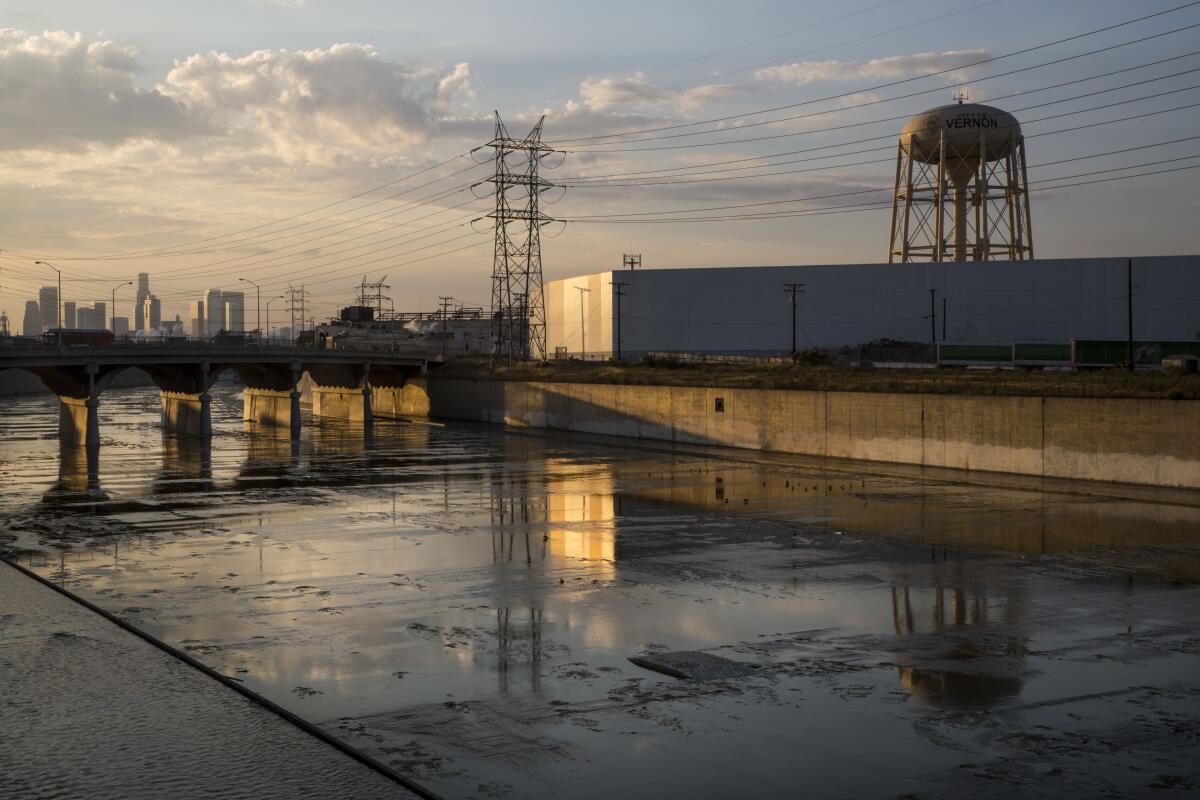
The city has had an outsized influence on surrounding cities, whose residents often rely on jobs tucked in a place whose motto is “Exclusively Industrial.” But Vernon’s influence has been felt in other ways.
Most recently, the Exide battery recycling plant there was shut down in 2015 after spewing arsenic and lead into other southeast L.A. cities, including Huntington Park, Boyle Heights and Maywood. In 2011, Vernon officials avoided disincorporation by agreeing to reforms and $60 million worth of community projects.
Belén Bernal, South Gate’s former mayor, said nearby cities have always been threatened by their industrial neighbor. Smells emanate from the factories. Air quality is poor. The fact that South Gate residents working in the facilities are now exposed to coronavirus clusters is not surprising, she said.
“We see this happening over and over in disadvantaged communities,” she said.
Vernon officials, aware of the city’s reputation, said they were proactive in efforts to prevent the virus from spreading. The city issued an emergency declaration, closing City Hall except for essential business, and contributed $250,000 from its community development fund to support free testing in the area by medical provider AltaMed, said city administrator Carlos Fandino Jr.
Fandino said the AltaMed funds show that Vernon means to do right not only by its employees, but by the surrounding communities where many of those employees live. Despite past setbacks, he thinks Vernon is now “a model city.”
“The whole design here is for Vernon to be a good neighbor to the surrounding community and to assist the community in ways other than what we do for our businesses and resident community,” he said.
According to the report by county health officials, Vernon’s Health and Environmental Control Department was the only public health department in the state without a physician health officer prior to June 2. On Thursday, a city representative said they had appointed former county health consulting physician Laurene Mascola to that role.
The report also said the city health department is the only one without an infectious disease control program.
Fredrick Agyin, director of the city’s health department, said it monitors Farmer John for cleanliness and has a full-time U.S. Department of Agriculture inspector present. He said the city is always willing to partner with the county’s health department.
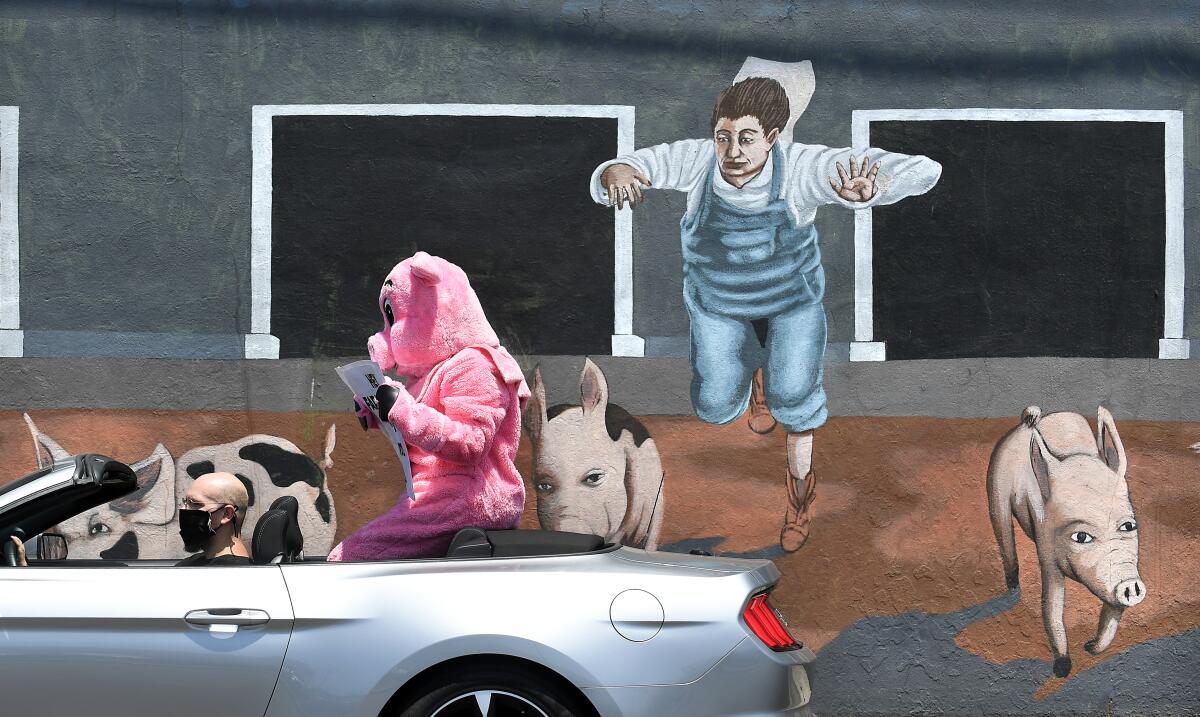
Albarran said he started noticing new protections at the plant sometime in April. The company installed clear plastic curtain-like barriers between workers and distributed helmets with face shields for employees. Plastic dividers were placed in the facility’s two dining rooms, and hand sanitizer dispensers were scattered throughout the plant.
As he chops pieces of pork on the line, his face shield fogs up and his arms brush against the plastic curtains. Plastered all around the factory are posters saying “Thank you” to workers.
Albarran, who immigrated to California in the 80s and worked his way up to earning just under $15 per hour at the plant, said he never once has felt “essential.”
“They’ve always looked at us as a number or as replaceable employees,” he said. “The irony is, now that there’s this crisis, now we’re heroes. Now they want to protect us. That’s not fair,” he said. “We work with fear all the time.”
Even as he and his coworkers heard rumors that the virus was spreading, the company remained quiet. He said he would prefer if the posters gave information about the number of infected workers and which departments are experiencing outbreaks.
“I don’t know why they didn’t tell us. I think we have a right to know how many have the illness,” he said.
Darryl Blackwell, an employee and union steward from Westmont, said he appreciates the plastic dividers and protective gear. But people still crowd in certain public areas, such as where employees clock in, due to a number of broken machines, Blackwell said.
“That’s ludicrous. It’s defeating the purpose of social distancing,” he said.
Maywood Mayor Eddie De La Riva said Vernon’s leadership has been more accessible in recent years. But he worries about what impacts the Vernon outbreaks will have on his residents. The city is already limited in resources and he wonders whether job cuts at Farmer John would impact Maywood’s residents and economy.
“If Farmer John closes down or if these people aren’t allowed to go to work, are they still getting paid?” he asked. “If not, it’s just adding more to an already very delicate problem. I’m getting emails on a daily basis from people who need food.”
In a statement, Smithfield said it is offering paid leave for those who become infected or need to be quarantined.
Responding to criticisms that the masks, gloves and other protection came too late, a company representative said they did everything they could, as fast as they could.
“Overnight, the need for masks and face shields was thrust upon us and the nation,” the company said in a statement. “Procuring these items, at a time when PPE supply chains were stressed to the max, was challenging to say the least. ... The suggestion that we were slow to react is simply not true and completely overlooks an inconvenient truth — supplies were not readily available.”
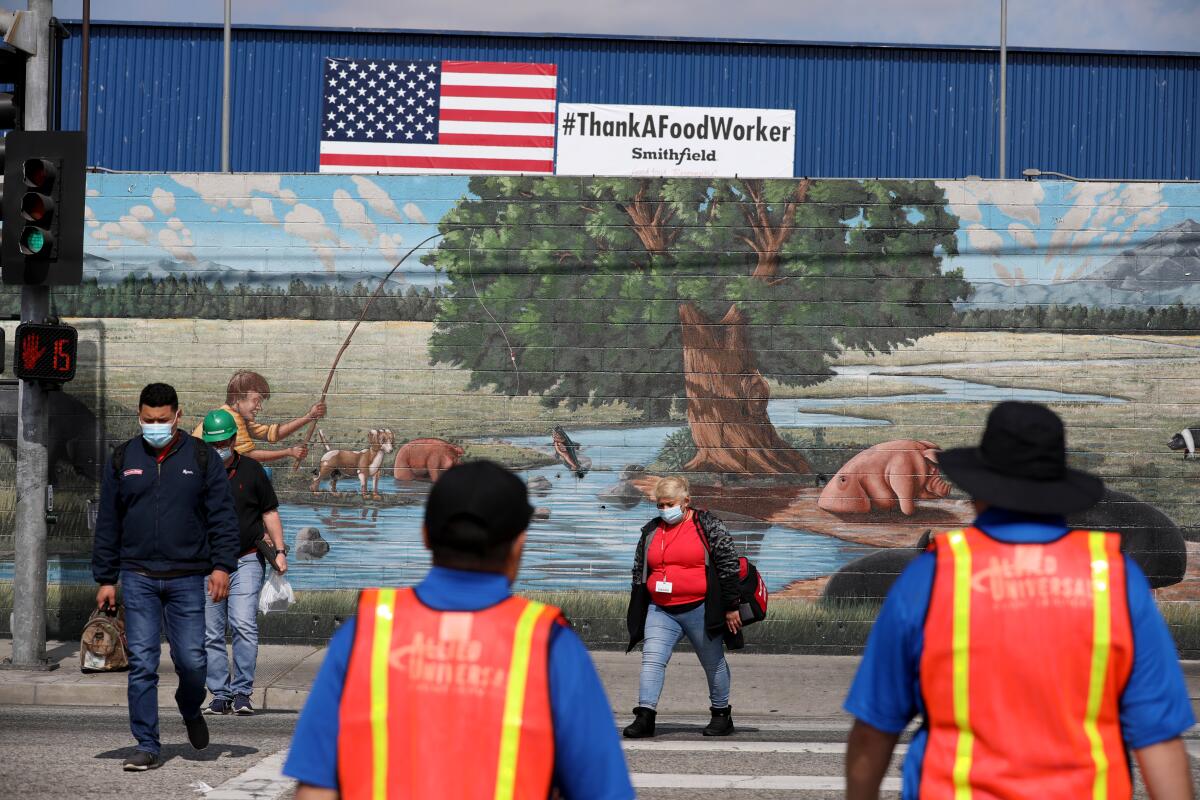
Jose Guzman, a 61-year-old employee and union steward, said he knew the crowded plant was ripe for an outbreak. He started asking a human resources representative for basic supplies like masks and hand sanitizer as early as late March, but was told it wasn’t the company’s obligation to provide the supplies, Guzman said.
As COVID-19 cases in the county skyrocketed, some employees started bringing their own handmade masks to work, he said. At one point, about 25 employees gathered to walk to the human resources office and give their list of demands together.
“The company was initially very slow to do anything. Then, when there were more outbreaks, they started to act.”
According to the county health report, Vernon began investigating the first outbreak in the facility’s ham deboning department in April, when just six people were infected. The health department deemed the plant’s response satisfactory.
A Farmer John employee who requested anonymity for fear of reprisal, said for weeks, the presence of the virus within the facility was “hush hush.”
“At first, we’d just hear rumors. ‘Oh, somebody is sick,’” the employee said. “Everybody is asking questions, but nobody is answering them. They’re just keeping it really quiet.”
One day, the ham deboning department was closed, but supervisors still wouldn’t answer questions, he said. News of the outbreak spread within the facility, and so did panic.
“They came to me and said, ‘Jose, what are we going to do? We’re scared of getting infected and taking it to our families,’” said Guzman.
Guzman said the company started handing out masks and implementing protective measures in mid-April.
By then, it would be too late for him.
He began experiencing symptoms of the virus while at work on April 16 and tested positive, along with his wife, not long after that. Guzman was hospitalized for weeks with breathing difficulties and hasn’t returned to work. An oxygen tank helps him breathe.
“I can’t fill my lungs with air,” he said.
More to Read
Sign up for Essential California
The most important California stories and recommendations in your inbox every morning.
You may occasionally receive promotional content from the Los Angeles Times.


